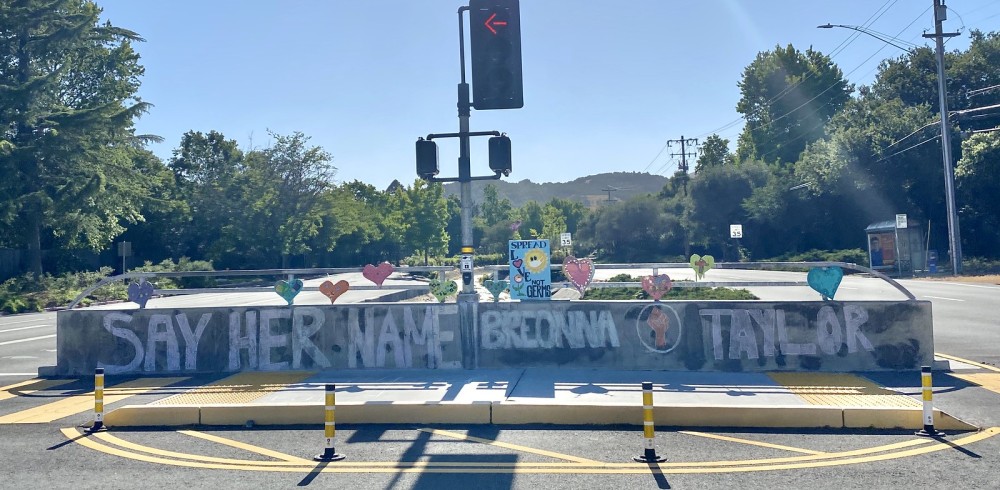While the valiant online efforts of my local congregation have been a lifeline to me during COVID-19, the other day I had church for the first time since the start of the pandemic. That worship service was a black lives matter protest.
Unlike other protests I’ve been to recently, this one wasn’t a march but a rally—so it had an adequate sound system. I could hear the call to repentance: the litany of names, beginning with Breonna Taylor and George Floyd, black people sacrificed to the idol of white supremacy.
There was confession, in a sense, as a white schoolteacher talked about implicit bias, prejudice, and genocide. And then there was the most ridiculous forgiveness. A young black woman thanked all the white people who came out to protest. We blushed and looked at our feet, aware that we were undeserving of such a gracious response.






